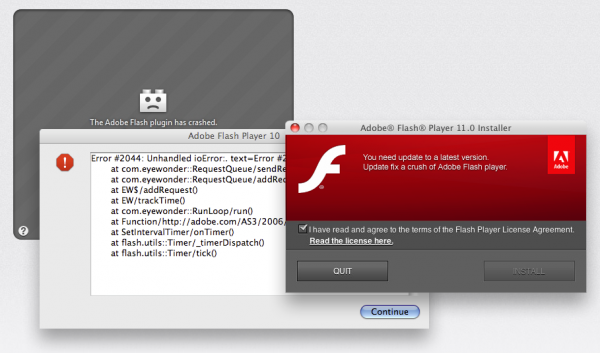 If you've ever wondered what the heck Facebook and other security news sites are talking about when they mention "Koobface," I decided this might be a good blog entry to explain the OS X version in simple terms. Koobface is a computer worm that first targeted users of social networking sites Facebook and Twitter.
If you've ever wondered what the heck Facebook and other security news sites are talking about when they mention "Koobface," I decided this might be a good blog entry to explain the OS X version in simple terms. Koobface is a computer worm that first targeted users of social networking sites Facebook and Twitter.Intego’s most elite Mac Virus hunters determined the Trojan horse OSX/Koobface.A affects the Mac OS X platform, too. Someone might encounter Koobface.A from links on Facebook, MySpace and Twitter, or from some other dark corners of the inner-webs. If you're one of these unfortunate, unsuspecting Mac users, then you would be taken to a page so you can view a video, which is when the malicious Java applet loads.
As normal with Mac security, first you would be alerted to this by way of the standard Mac OS X Java security alert. Allow the malware to run on your Mac and it will attempt to download files from one or more remote servers. If your Macs have Anti-Spyware activated, which they say comes with antivirus for Mac, I know that Intego software will alert you to an outgoing connection by Java.
If your Macintosh does not have anti-virus threat filters, and malicious files are downloaded, Mac security experts say these files include elements designed to infect Mac OS X, Windows and Linux. According to Facebook Security and Intego's most elite Mac Virus hunters, there is evidence of several malware infections in the wild.
If you think you're infected, you might be asking yourself: Does my Mac have a Virus?



